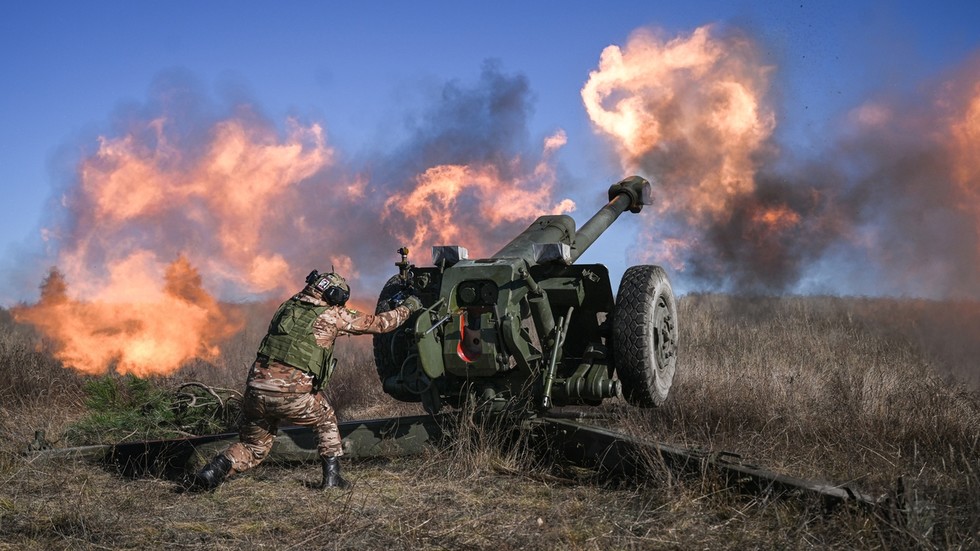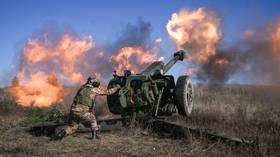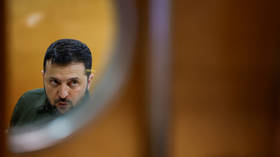
The attempt to cut Russia’s land corridor to Crimea in Zaporozhye Region has failed, Evgeny Balitsky has said

Russian soldiers fire a 2A18 D-30 howitzers at a training ground during Russia’s military operation in Ukraine, at the unknown location. © Sputnik/Stanislav Krasilnikov
Moscow’s forces have stopped the Ukrainian counteroffensive dead in its tracks, Evgeny Balitsky, the governor of Zaporozhye Region, has said.
He further described what he called Kiev’s last-ditch attempts to breach Russian defenses as not particularly impressive. In recent months, Zaporozhye has emerged as a scene of some of the fiercest fighting.
Speaking to reporters on Monday, Balitsky stated that “the enemy has been halted, as has been its much-hyped counteroffensive.” He said that the ongoing fighting near the settlements of Rabotino and Shcherbaki and on the Vremievsky Ridge was “almost an agony for the Ukrainian regime.”
The official declared that Ukrainian forces, which have been trying to storm Russian positions for months, have “completely run out of steam.”
“Now, when the enemy launches an attack, they deploy only small forces because their companies are understrength,” he added.
According to Balitsky, the plan to reach the Sea of Azov and cut Russia’s land bridge to Crimea – widely seen as the main objective of Kiev’s summer campaign – has been thwarted. He also claimed that Ukrainian attacks are now largely unsupported by armor, as Russian forces have knocked out many vehicles.

Read more
The governor stated that the current “meat onslaught” had been organized by Kiev’s Western backers, suggesting that the latter would prefer to lose Ukrainian soldiers rather than their own expensive military equipment.
Ukraine began a large-scale offensive in early June, but has failed to make substantial progress. Russian Defense Minister Sergey Shoigu said last week that “the Kiev regime is losing.” He has previously estimated Ukraine’s losses at more than 90,000 troops, nearly 600 tanks, and 2,000 armored vehicles since the start of the push.
Meanwhile, Ukrainian officials have admitted difficulties with the campaign, blaming a lack of progress on delays in Western support, strong Russian defenses, and extensive minefields as well as Moscow’s air superiority.
Last week, Ukraine’s commander-in-chief, Valery Zaluzhny, characterized the frontline situation as a “stalemate” due to the level of technological prowess of both sides. That assessment, however, was rejected by Ukrainian President Vladimir Zelensky, who insisted that while his country found itself in a “difficult” situation, it still had the initiative.




